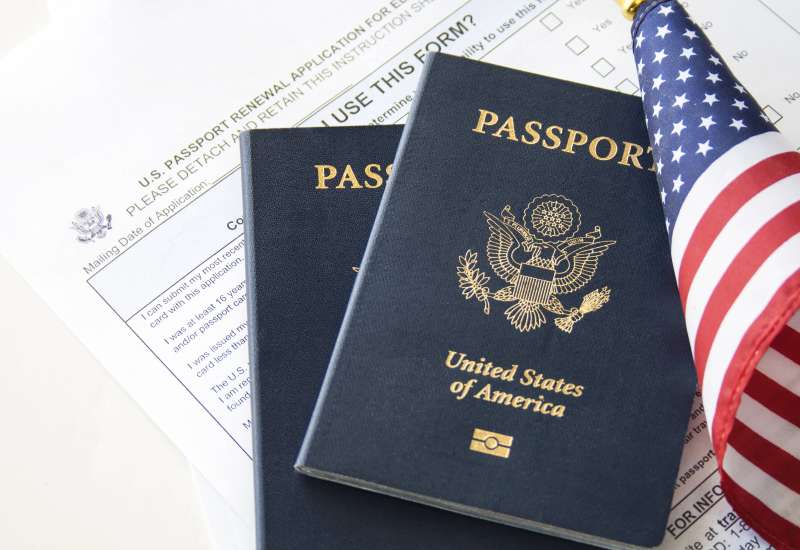How Can Houston Residents Apply For U.S. Citizenship?
Summary:
Naturalization is how a lawful permanent resident becomes a U.S. citizen. You must meet residency, age, and good moral character requirements before applying. The process includes submitting Form N-400, attending a biometrics appointment, and passing the English and civics tests. With the right preparation and guidance from a Houston citizenship attorney, you can approach your oath ceremony with confidence.

Becoming a U.S. citizen is a milestone that reshapes your life. It opens the right to vote, lets you apply for certain federal jobs, and shields you from the threat of deportation. For many in Houston, it’s also a personal victory: the moment they can call the United States home without hesitation.
We’ve walked alongside people who’ve waited years for this day, from business owners in downtown Houston to grandparents in Alief. Every story is unique, but the goal is the same: secure your place in this country with confidence. If you’re ready to start, it helps to understand the rules, the process, and how to avoid the missteps that can cost you time and money.
What Are The Core Eligibility Requirements For Naturalization?
Before you apply, it’s crucial to know whether you meet the basic qualifications. USCIS is strict about these rules, and missing even one can delay or derail your application. Below are the fundamental areas they look at when deciding if you’re ready to become a U.S. citizen.
Age & Immigration Status
To apply for U.S. citizenship through naturalization, you must meet both the age and immigration status requirements before filing. You need to be at least 18 years old on the day you submit Form N-400, Application for Naturalization. You must also hold lawful permanent resident (LPR) status and have a valid Green Card. For example, a student in Houston who received her Green Card through her parents at age 17 had to wait until her 18th birthday before she could apply.
Residency & Physical Presence
Meeting residency and physical presence requirements is about more than numbers. They show USCIS that you’ve built a home in the U.S. and plan to stay. Here are the criteria you must meet to demonstrate this:
- 5 years as a permanent resident, or 3 years if married to a U.S. citizen.
- Continuous residence during that period; avoid long trips abroad.
- Physical presence in the U.S. for at least 30 months of the 5 years, or 18 months of the 3 years if married to a citizen.
Staying mindful of these rules while you travel or work abroad will help you stay on track toward becoming a U.S. citizen without unnecessary delays.
Good Moral Character
USCIS reviews your history to ensure you’ve lived responsibly during your residency. This includes having no serious criminal convictions, filing and paying your taxes, and providing honest, complete information on immigration forms. Even minor issues, such as unpaid child support, can raise red flags.
Bottom line: If you’re unsure whether you meet every requirement, take time to confirm before filing. A Houston citizenship attorney can help you review your history and identify any areas to address first. Knowing you’re truly eligible saves you from costly mistakes later.
How Can You Prepare For The Application Process?
Once you know you’re eligible, preparation is your best friend. The naturalization process moves faster and more smoothly when you’ve gathered everything you need and understand each step in advance.
| Step | What It Involves | Why It Matters |
| Gather Key Documents | Green Card, tax returns, marriage/divorce records, Selective Service proof, criminal records (if any). | Missing or incomplete documents can cause delays or requests for evidence. |
| Know the Fees | As of 2025, $710 (online) or $760 (paper) for Form N‑400; reduced fees or waivers may apply. | Filing with the wrong amount can mean rejection. |
| Consider Early Filing | Apply up to 90 days before meeting the residency requirement. | Saves time while still complying with the law. |
| Plan for Test Preparation | Review English and civics test materials from USCIS. | Passing the test is required unless you qualify for an exemption. |
Tip: Staying organized keeps you in control of your immigration journey. Preparing early reduces stress, avoids last‑minute scrambles, and can make the interview itself much less intimidating.
Step‑By‑Step Naturalization Process
Knowing the order of events can help you feel in control and avoid surprises. While each case is unique, most applicants in Houston follow the same basic path from filing their application to taking the oath of allegiance.
Step 1 – File Form N‑400
The journey begins with completing Form N‑400, the Application for Naturalization. You can submit it online or by mail, but either way, it must be filled out completely and truthfully. Many applicants find it helpful to review their immigration history before filing, making sure all dates, addresses, and personal details are accurate.
Step 2 – Biometrics Appointment
Once USCIS accepts your application, they’ll schedule a biometrics appointment. This visit involves fingerprinting, photographing, and collecting your signature to verify your identity and run background checks. It’s a quick appointment, but missing it can delay your case for weeks or even months.
Step 3 – Interview & Testing
Your interview with a USCIS officer is where you’ll take the English and civics tests unless you qualify for an exemption. The officer will also review your application with you, clarifying any details and asking questions about your background. Many Houston applicants prepare weeks in advance, using study guides or community classes to boost confidence.
Step 4 – Decision & Oath Ceremony
After your interview, USCIS will issue a decision: approval, continuation (for more evidence or a retest), or denial. If approved, you’ll receive a notice for your oath ceremony, which is the final step to becoming a U.S. citizen. Standing with other new citizens, raising your right hand, and taking the Oath of Allegiance is both symbolic and life‑changing.
Common Pitfalls & How To Avoid Them
Even qualified applicants can run into problems if they overlook small but important details. Here are the most frequent issues that cause delays or denials and how to sidestep them.
- Missing Residency Requirements – Spending too much time outside the U.S. can break your continuous residence and physical presence requirements. Plan international trips carefully while your application is pending.
- Failing to Disclose Criminal History – USCIS will see your full record during background checks. Omitting an arrest or conviction, even if it was minor or expunged, can lead to denial.
- Incomplete Forms or Missing Documents – Leaving blanks on your N‑400 or forgetting required evidence often results in a request for evidence (RFE), which can add months to the process.
- Tax Problems – Unpaid taxes or failure to file returns can raise questions about your moral character. Resolve any tax issues before applying.
- Last‑Minute Test Prep – Waiting until just before the interview to study can lead to failing the civics or English exam. Start reviewing as soon as you decide to apply.
Avoiding these pitfalls can make your naturalization process smoother and less stressful. If any of these issues sound familiar, a Houston citizenship law firm can help you address them before they become obstacles.
Special Considerations For Military, Seniors & Disabled Applicants
Some applicants qualify for exceptions that make the naturalization process faster or less demanding. These special rules recognize service, age, and certain medical conditions.
| Group | Special Provision | Key Benefit |
| Military Service Members | May be eligible for expedited naturalization or have certain residency requirements waived. | Faster path to citizenship without the standard waiting period. |
| Older Applicants | Age 50+ with 20 years as an LPR, or age 55+ with 15 years as an LPR, may take the civics test in their native language. | No English test requirement; civics test in native language allowed. |
| Applicants with Disabilities | Can request medical certification to waive English and civics tests if unable to meet them due to disability. | Removes testing requirement when medically justified. |
Each category has strict documentation rules, so be prepared to submit proof. Applying under one of these provisions can save time and effort, but you must meet all requirements.
How Can You Take The Next Step Toward Citizenship?

Naturalization is both a legal process and a personal milestone. For Houston residents, it means embracing new opportunities: voting in local and national elections, traveling with a U.S. passport, and passing citizenship on to your children. It’s also a moment of pride, knowing you’ve met every requirement and fulfilled your part in joining the American community.
If you’re just beginning, start by gathering your documents, confirming your eligibility, and making a plan for your application timeline. The earlier you prepare, the smoother your journey will be. And if you have questions or unique circumstances, getting guidance before filing can protect your time, money, and peace of mind.
If you’re unsure about your next step, we can figure it out together. Schedule a confidential evaluation with Houston Immigration Lawyers today, and we’ll walk you through your path toward becoming a U.S. citizen. It’s private, straightforward, and could be the first step toward your oath ceremony.
About The Author: Kate Lincoln-Goldfinch
 Kate Lincoln‑Goldfinch founded Houston Immigration Attorneys in 2015 and serves as its managing partner. After earning her J.D. from the University of Texas School of Law in 2008, she launched her advocacy journey as an Equal Justice Works Fellow supporting detained asylum‑seeking families. Today, Kate concentrates on family‑based immigration, deportation defense & humanitarian relief, including asylum & VAWA cases. She volunteers as Pro Bono Liaison for the AILA Texas Chapter and was honored as a Top Immigration Attorney by Austin Monthly in 2024. A mother of two, Kate is driven by a passion for immigrant justice and building stronger communities.
Kate Lincoln‑Goldfinch founded Houston Immigration Attorneys in 2015 and serves as its managing partner. After earning her J.D. from the University of Texas School of Law in 2008, she launched her advocacy journey as an Equal Justice Works Fellow supporting detained asylum‑seeking families. Today, Kate concentrates on family‑based immigration, deportation defense & humanitarian relief, including asylum & VAWA cases. She volunteers as Pro Bono Liaison for the AILA Texas Chapter and was honored as a Top Immigration Attorney by Austin Monthly in 2024. A mother of two, Kate is driven by a passion for immigrant justice and building stronger communities. 

